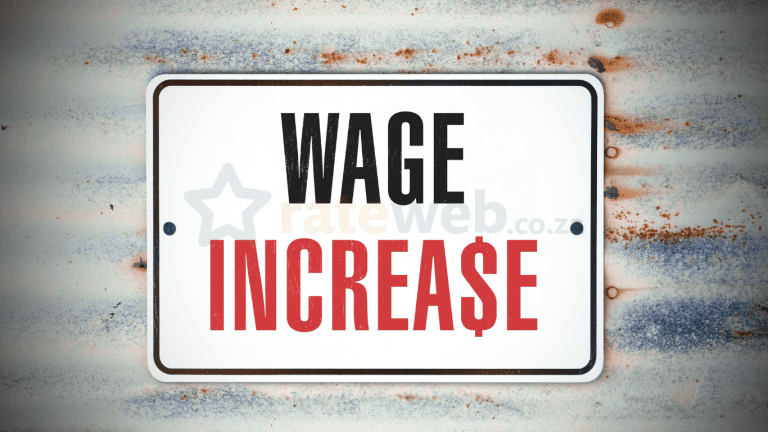Many of us have had gigs in the past, especially when first starting out in the workforce. If you have previously worked as a contractor, you are a part of our economy. Millions of people work from one gig to another, and the economy is so large that it grew rapidly in 2020.
The combination of Covid-19 and unemployment has resulted in a significant increase in gigs. Do you work on Fiverr, Freelancer.com, Bolt, or Uber? You are part of the big economy that has been emerging since the 2010s in South Africa. Before we go any further let us define the gig economy.
What is a Gig Economy?
A gig economy is a system in which organizations hire independent workers for short-term projects and temporary positions. These self-employed individuals make a living by providing on-demand work, goods, or services. The most common characteristics of individuals working in the gig economy are short-term work, flexible job opportunities, and independence.
Individuals and businesses in the gig economy typically provide jobs through online platforms and mobile apps. Fiverr, Airbnb, and Bolt are just a few examples of businesses that offer job opportunities in the gig economy. This type of economy is present in every industry in South Africa and it employs a large number of people.
According to the South African Freelancers’ Association, 34 percent of South Africans worked as freelancers in 2019, with that figure expected to rise to 50 percent by 2022. Women between the ages of 30 and 36 from Gauteng and the Western Cape dominate the market.
Characteristics of a Gig Economy
- Short-term, flexible jobs that individuals and businesses offer to freelancers and independent contractors.
- Individuals that work in the gig economy are not full-time employed.
- Workers move from one job to another in a short space of time.
- Workers and job providers normally engage in a web-based system whereby contracts are issued and payments are conducted after the job is done.
How Does a Gig Economy Work?
As independent and freelance workers can work in almost any industry in South Africa, the gig economy encompasses a wide range of industries. Depending on the type of work that needs to be done, work can be done virtually or in person. Those who work in the this economy are primarily skilled in:
- Information Technology and Computer Sciences,
- Project Management,
- Accounting and Finance,
- Graphic Designing,
- Copywriting,
- Construction,
- Media and Communications,
- Freight and Transportation,
- Supply of Goods,
- Art and Design, and more.
The majority of gigs performed in the gig economy are found online. Freelancers apply for job opportunities online by stating their profession and level of experience. Qualifications do not constitute part of the job experience; rather, a proven track record constitutes the majority of the job experience.
However, one can begin with no prior work experience and work their way up. Other jobs do not necessitate a high level of skill, but they do necessitate assets. Linebooker, a freight platform, for example, only requires an individual to have a truck or a fleet of trucks in order to register on their platform.
The bidding process is the most common in the gig economy because the prices for services and goods partially determine who gets a gig. Those with the highest level of experience and rating are likely to receive the highest paying gigs than those that are low rated or that are starting out.
Be Prepared Before Joining the gig economy
Working in this type of economy has its benefits and drawbacks, and you should be aware of them before entering this thriving industry. The industry can offer you flexible hours, quick cash, the ability to set goals, and extra income.
Given the numerous advantages of working in the gig economy, here are a few things you should be aware of.
Find out how much you should charge
Pricing is the most difficult aspect of most businesses because you don’t want to overcharge or undercharge your customers. Since the gig economy is primarily a bidding economy, you must understand the price you must charge for your services, as well as the quantity of work.
Furthermore, knowing how you will be paid should be prioritized. You will then know how much you will charge, how much you will be paid, and when you will be paid. The majority of gig jobs pay instantly upon completion of a task.
Potential Costs
When performing a specific task, you are likely to incur additional costs. If you want to edit photos, for example, you may need to purchase an Adobe Photoshop subscription. These costs must be factored into your pricing and quantified based on the subscription duration.
Scams
There is no industry that is free of scammers, and the gig economy is no exception. Be on the lookout for scammers who request upfront payment or a deposit percentage when working on projects for people or businesses you suspect that are not legitimate.
Taxes
As a South African citizen, you are taxed on your total income earned both in South Africa and elsewhere. When working as a freelancer, keep in mind that you must pay a provisional tax and that your earnings are taxed. Taxation will be based on the amount of money you earn; therefore, budget for taxes when working in the gig economy.
Conclusion
Many people who are unemployed but have skills can find work in a gig economy, and individuals can set their own working hours and, in some cases, their own income. The gig economy has provided a financial safety net for those who have been laid off as a result of Covid-19, the financial crisis, or economic downturns.
South Africans can now earn money from all over the world without leaving their homes, thanks to a multibillion-dollar industry. The gig economy is something to be celebrated because it provides opportunities for both employed and unemployed people.










































